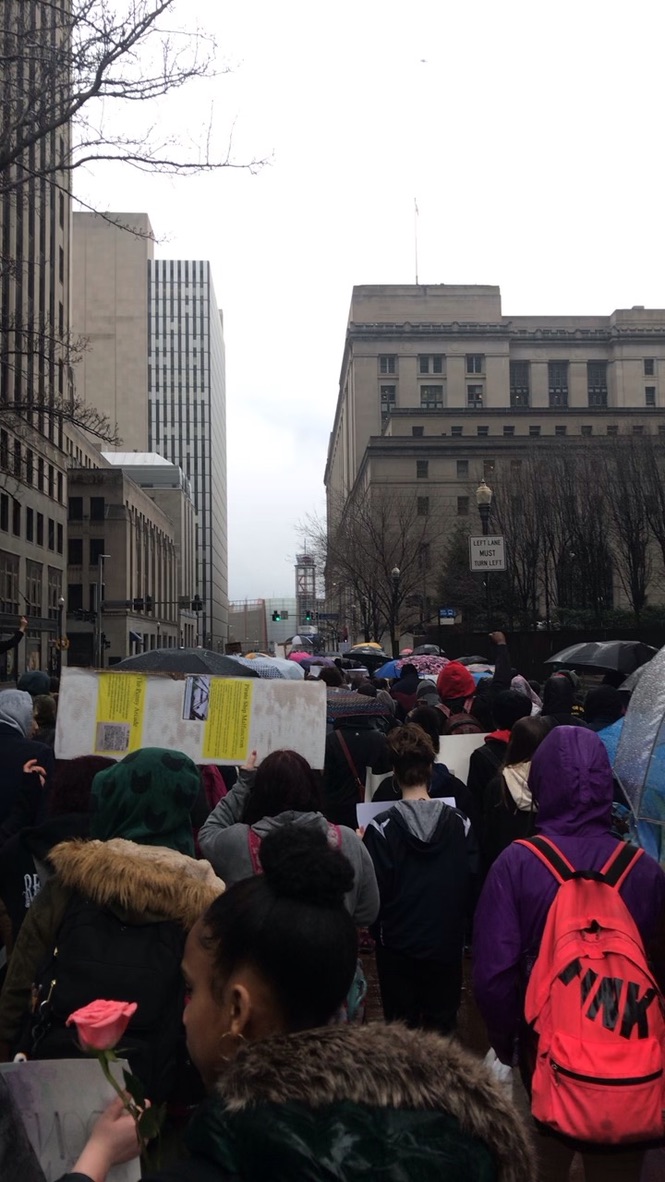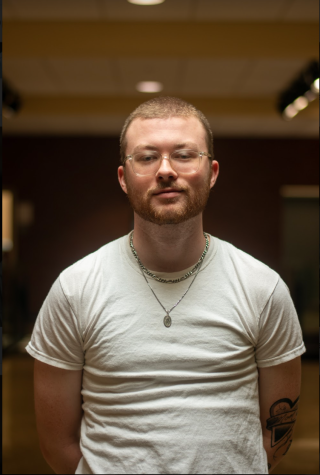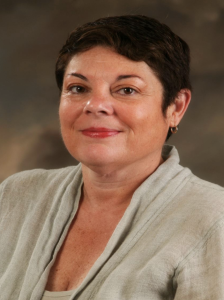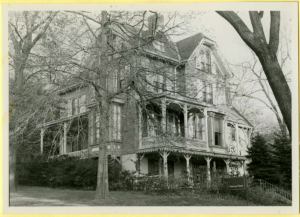First-year students stand up for Black Lives Matter movement
Students at a previous Pittsburgh Black Lives Matter protest
September 25, 2020
Chatham University students are fighting for diversity and inclusion through the Black Lives Matter movement.
Although many first-year students are still adapting to college life, they also are speaking out and taking a stance on issues of racial inequity.
Protests in support of Black Lives Matter have expanded rapidly in recent years in many cities. The movement began in 2013 in response to police officer George Zimmerman being acquitted from the charges related to fatally shooting Trayvon Martin, a 17-year-old Black high school student.
Since then, the Black Lives Matter movement has continued to highlight the inequalities in the U.S. justice system and systemic racism.
“Regarding diversity [at Chatham],” Aaliyah Thomas, class of ‘24 president, said, “I really want to start getting the conversation started.” She believes it may be hard for some to communicate their ideas. “We want it to be an environment of inclusivity, but also a comfortable conversation for everybody.”
Thomas has first-hand experience attending Black Lives Matter protests. She believes that the protests aren’t always depicted accurately by mainstream media, which causes a lot of people to be too scared to go out and show support.
“I didn’t feel in danger. … I feel like the media specifically is quick to show a violent protest versus a non-violent protest,” Thomas said.
Black Lives Matter is very personal to Thomas. As a Black individual raised by white parents, she has experienced racist comments and stereotypes.
“It’s a hard thing to go through,” she said, “and even harder to be stereotyped.”
Thomas has struggled to understand her identity throughout her life. Growing up with both parents being white and Republican, she has experienced many hardships.
“Mostly real-life accounts like … being called the n-word downtown because I looked at a guy too many times,” Thomas explained. “You know, not understanding that and my mom telling me ‘well, you’re not the n-word, Aaliyah — you’re white,’ and it not making sense.”
Thomas has pursued activism not only through protests and social media, but also through storytelling in her prose and poetry. Two of her pieces, “Said” and “Love isn’t skin color,” were recognized by Carnegie Mellon University in its annual Martin Luther King Jr. Writing Awards.
“This issue [of injustice] is not just going to disappear,” Thomas said. “It’s not going to just go away. … It’s going to persist until people start listening.”
Protests aren’t the only way to contribute to the movement. Lily Slagle ‘24 has found ways to show her support from home.
“I have signed a ton of petitions and advocated for Black lives on social media,” Slagle said.
Online there are various bail and relief funds that can be donated to and petitions to sign, as well as information on the movement for those interested in contributing and learning.
“There aren’t enough people taking action within this movement yet. My advice for those afraid of joining the movement is to let go of that fear,” Slagle said. “You can be the change that needs to be seen.”
There are many events scheduled across Pittsburgh during the next month. On Oct. 9-11, SisTer’s PGH is hosting an online event to stand up for transgender Black lives. Details on other protests and events can be found at burghprotests.com








